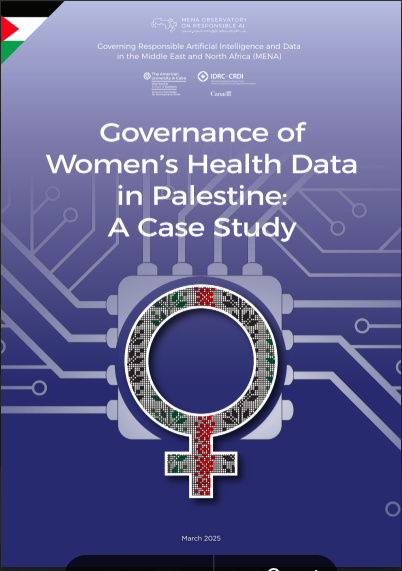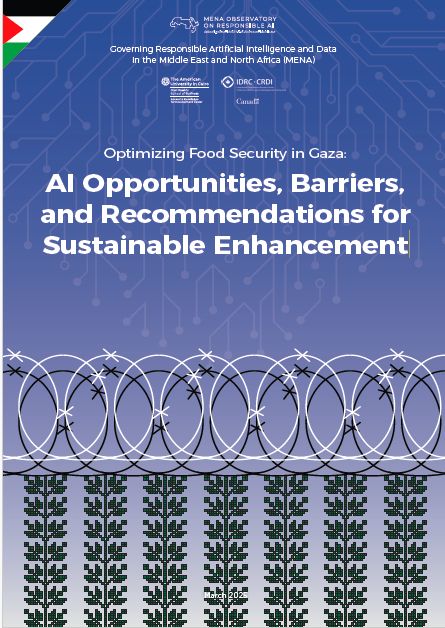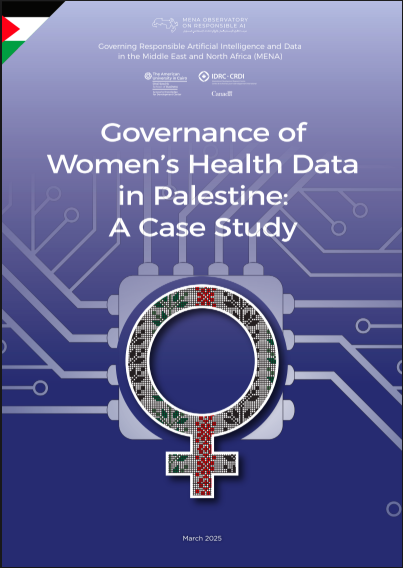¹ Ministry of Communications and Information Technology. (n.d.). Open Government Data Initiative - Palestine. Open Government Data Initiative - Palestine | Arab Open and Innovative Government Portal. https://opengov.unescwa.org/node/1177
² Ministry of Telecom and IT (2021). Open Data Government Initiative https://datacatalogs.org/portal/open_data_ps
³ Palestinian Central Bureau of Statistics (2021). Palestine Data Strategy 2022-2026. https://www.pcbs.gov.ps/Portals/_Rainbow/Documents/PalDataStrategyPDS2022-2026E.pdf
⁴ Husseini, Hiba (2016). Legal Duality in the Occupied West Bank. Palestine Israel Journal, Vol. 21 No. 3, 2016. https://pij.org/articles/1683/legal-duality-in-the-occupied-west-bank
⁵ Stevens, Andrew (2011). Surveillance Policies, Practices and Technologies in Israel and the Occupied Palestinian Territories: Assessing the Security State. The New Transparency, Working Paper IV. https://www.surveillance-studies.ca/sites/sscqueens.org/files/2011-11-Stevens-WPIV_0.pdf
⁶ BASIC LAW OF THE PALESTINIAN NATIONAL AUTHORITY. Venice Commission: Council of Europe. (2009, March 4). https://www.venice.coe.int/webforms/documents/default.aspx?pdffile=CDL(2009)008-e
⁷ AbuShanab , Anan. “Connection Interrupted: Israel’s Control of the Palestinian ICT Infrastructure and Its Impact on Digital Rights.” 7amleh – The Arab Center for the Advancement of Social Media, December 2018. https://7amleh.org/wp-content/uploads/2019/01/Report_7amleh_English_final.pdf
⁸ President of the Palestinian National Authority. (2017, June 24). Law by Decree No. 16 of 2017 on Cybercrime. DCAF Legal Database. https://security-legislation.ps/en/law/100111
⁹ President of the Palestinian National Authority. (2020, September 1). Law by Decree No, 28 of 2020 on Cybercrime. DCAF Legal Database https://security-legislation.ps/en/law/100198
¹⁰ Abu Aita, R., Al-Barghouthi, B., Cottier, B., Friedrich, R., Itawi, F., Kaufmann, R., Luethold, A., Masson, N., Matarea, A., Rimawi, M., Touma, F., Rimawi, M., Abu Arqoub, M., Arouri, M., & Hammad, A. (Eds.). (2013, July 11). Palestinian draft law on access to information: Bringing access to information legislation in line with international civil-democratic standards. DCAF – Geneva Centre for Security Sector Governance. https://www.dcaf.ch/palestinian-draft-law-access-information-bringing-access-information-legislation-line-international
¹¹ Stevens, A. (2011, November). Surveillance Policies, Practices and Technologies in Israel and the Occupied Palestinian Territories: Assessing the Security State. the new transparency: surveillance and social sorting . https://www.surveillance-studies.ca/sites/sscqueens.org/files/2011-11-Stevens-WPIV_0.pdf
¹² Goodfriend, S. (2022, February 21). How the occupation fuels Tel Aviv’s booming AI sector. Foreign Policy. https://foreignpolicy.com/2022/02/21/palestine-israel-ai-surveillance-tech-hebron-occupation-privacy/
 Exciting News: Visit AI Everything Middle East and Africa 2026 for the latest in AI innovation!
VISIT NOW →
Exciting News: Visit AI Everything Middle East and Africa 2026 for the latest in AI innovation!
VISIT NOW →



